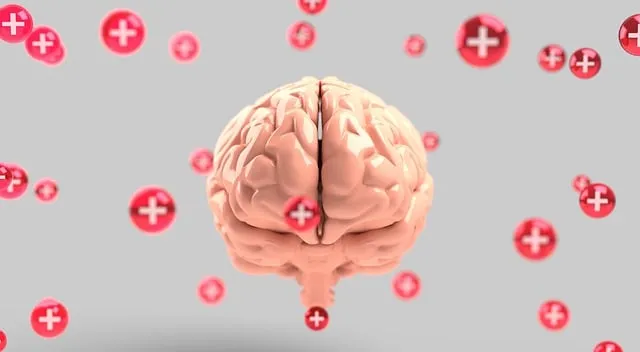Boulder Kaiser Permanente (KP) mental health providers prioritize early depression detection, identifying common signs and offering specialized care through comprehensive assessments. They advocate for proactive mental well-being management, promoting holistic approaches like exercise, balanced diets, sleep, social connections, mindfulness, and stress reduction. KP provides tailored therapy sessions, support groups, online resources, and crisis intervention, fostering a culture of compassion to aid depression recovery.
Depression prevention is a vital aspect of maintaining good mental health. In Boulder, Kaiser Permanente mental health providers play a crucial role in early detection and awareness, offering guidance and support for proactive well-being. This article explores strategies to recognize and prevent depression, focusing on lifestyle adjustments such as exercise, diet, sleep, social connections, stress management, and mindfulness techniques. Additionally, it provides resources and professional help available through Kaiser Permanente and other reliable sources.
- Recognizing Depression: Signs and Symptoms (Focus on early detection and awareness, with a section dedicated to understanding the role of Boulder Kaiser Permanente mental health providers)
- Lifestyle Adjustments for Proactive Mental Well-being (Covering topics like exercise, diet, sleep, social connections, stress management, and mindfulness techniques)
- Accessing Support: Resources and Professional Help (Guiding readers on seeking assistance, including information about therapy options, support groups, online resources, and emergency contacts)
Recognizing Depression: Signs and Symptoms (Focus on early detection and awareness, with a section dedicated to understanding the role of Boulder Kaiser Permanente mental health providers)

Early detection is key when it comes to recognizing depression. While it can manifest differently in each individual, there are common signs and symptoms to look out for, such as persistent feelings of sadness, loss of interest or pleasure in activities once enjoyed, changes in appetite or weight, disturbances in sleep patterns, low energy or fatigue, difficulty concentrating, feelings of worthlessness or guilt, and recurrent thoughts of death or suicide. Recognizing these early indicators is crucial as it allows for prompt intervention and support, potentially preventing the condition from worsening.
Boulder Kaiser Permanente mental health providers play a vital role in this process, offering specialized care and resources to help individuals navigate their mental health journey. Through comprehensive assessments, they can accurately diagnose depression and develop personalized treatment plans that may include therapy, medication, or a combination of both. Additionally, these providers often collaborate with community outreach programs and advocate for effective mental health policies (Mental Health Policy Analysis and Advocacy), ensuring accessible support systems for those facing depression. By fostering awareness and implementing self-care practices (Self-Care Practices), Boulder Kaiser Permanente is committed to empowering individuals to take charge of their mental well-being.
Lifestyle Adjustments for Proactive Mental Well-being (Covering topics like exercise, diet, sleep, social connections, stress management, and mindfulness techniques)

Maintaining a proactive approach to mental well-being is essential in preventing depression. Boulder Kaiser Permanente mental health providers recommend integrating several lifestyle adjustments into your routine. Regular exercise, for instance, boosts mood and reduces anxiety symptoms by increasing brain chemicals that affect how we feel. A balanced diet ensures your body gets the nutrients necessary for optimal brain function. Prioritizing quality sleep helps regulate hormones and maintain emotional stability.
Moreover, cultivating social connections and practicing stress management techniques can significantly impact mental health. Engaging in activities that promote relaxation, such as mindfulness or meditation, can help lower stress levels. Building strong social ties fosters a sense of belonging and provides valuable support systems. Boulder Kaiser Permanente’s healthcare provider cultural competency training emphasizes the importance of these factors in overall risk management planning for mental health professionals, ensuring tailored care for diverse patient populations.
Accessing Support: Resources and Professional Help (Guiding readers on seeking assistance, including information about therapy options, support groups, online resources, and emergency contacts)

Depression can be a challenging condition to face alone. Accessing support is a crucial step towards prevention and recovery. If you’re experiencing symptoms of depression, reaching out for help is vital. Start by discussing your concerns with your primary care physician or exploring local community outreach programs focused on mental health awareness. Boulder Kaiser Permanente offers a range of mental health services, including access to skilled therapists who can provide individual or group therapy sessions. These professionals are trained in various evidence-based treatments and can tailor their approach to your unique needs.
Support groups have proven effective for many individuals dealing with depression. Joining such groups allows you to connect with others facing similar challenges, fostering a sense of belonging and understanding. Online resources are also abundant, offering tools like meditation apps or digital therapy platforms. In severe cases, emergency contacts specializing in crisis intervention can provide immediate assistance. Remember, compassion cultivation practices have been shown to enhance emotional well-being, and incorporating these into your routine might be beneficial.
Depression is a manageable condition, and with the right strategies, individuals in Boulder can proactively enhance their mental well-being. By recognizing early signs and seeking support from trusted sources, such as the experienced mental health providers at Kaiser Permanente, one can navigate this journey effectively. Incorporating lifestyle adjustments like regular exercise, balanced diets, and stress management techniques into daily routines empowers folks to take charge of their mental health. Remember, accessing professional help is a sign of strength, and there are numerous resources available, including therapy options, support groups, and online tools specifically tailored to meet individual needs.






